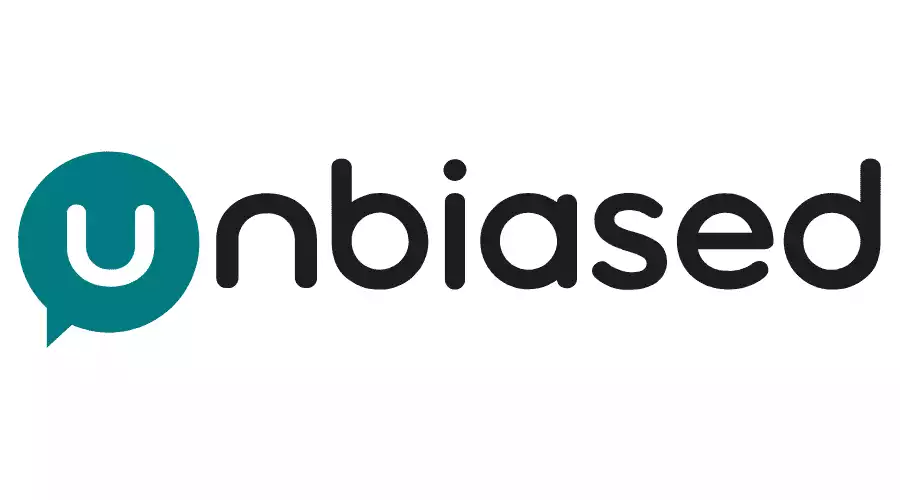
Sammie Ellard-King
I’m Sammie, a money expert and business owner passionate about helping you take control of your wallet. My mission with Up the Gains is to create a safe space to help improve your finances, cut your costs and make you feel good while doing it.

Quickfire Roundup:
A mortgage with no early repayment charge isn’t always easy to find. They do exist, but they’ll usually be a standard variable rate mortgage.
This means that in return for the flexibility and paying off your loan early, you’ll usually pay a higher interest rate.
To find the best deal for an ERC mortgage, your best course of action is to consult with a mortgage broker.
When you take out a mortgage, you make a commitment for a set period of time. If you want to move home, find a new lender or move to a new mortgage deal early, you’ll often find hefty fees come into play.
If you’re looking for a mortgage with no early repayment charge, so that you have the freedom to take decisions penalty-fee-free, you’ll find all that you need to know as you read on.
Match with a mortgage advisor that suits your unique financial goals, and when you do, Unbiased donates to the Samaritans.
What's meant by a mortgage with no early repayment charge?
As the name suggests, a mortgage with no early repayment charge is one when there are no fees for repaying early.
When you take out a mortgage, you agree to repay the loan to your mortgage lender over a set period of time (known as your mortgage term and also repayment mortgage), usually 25 or 30 years.

However, there may be times when you need to repay your mortgage early, such as if you inherit a large sum of money or if you sell your home and move to a smaller place.
It could be that you just want to find a better deal and lower your monthly repayments. If you repay your mortgage early, you may have to pay an early repayment charge (ERC).
An ERC is a fee that is charged by your lender if you repay your mortgage early. The amount of the early repayment fee will vary depending on the lender and the terms of your mortgage.
In some cases, the ERC can be very high, so it is important to be aware of it before you take out a mortgage.
When do early repayment charges come into play?
Although a mortgage will usually be set for 25 years plus, when you first sign up for a deal, the initial term lasts less than this. Let’s say that you take out a fixed rate mortgage.
Typically, the fixed interest rate will last for 2, 3 or 5 years. This period of time is known as your incentive period, and it’s when interest rates tend to be at a level that leads to lower monthly repayments.
The good interest rates that are given during your incentive period are in return for you agreeing to stay with the mortgage lender for a set time. It’s when you try and leave before the end of the fixed term that the fees kick in.
Boon Brokers are one of the UKs leading online mortgage brokers. They have a 5-star excellent Trustpilot rating with over 543 reviews.
- No mortgage fees
- Whole of market access
- Free online consultations
- Directly authorised by the FCA
- No in person meet ups
What are the advantages of mortgages with no early repayment charges?
The benefits of a mortgage deal with no early repayment charge include:
- Greater flexibility – when you find mortgage deals with no early repayment charges, you have the freedom to do what you want. You can explore other mortgage lenders, consider selling your home while you have an outstanding mortgage balance or even repay early, all without the fear of hefty redemption fees.
- You can overpay your mortgage – with most mortgage deals, you can overpay your mortgage at a set rate each year before early repayment charges come into effect. If you have a mortgage deal with no early repayment charges, you can overpay as much as you like and achieve mortgage-free status faster.

Are there any watch-outs with mortgages with no early repayment charges?
The benefits make a mortgage with no early repayment charge appealing, but there are potential watch-outs to be aware of:
- Higher interest rates – these translate to higher monthly repayments and are the trade-off for being able to leave your mortgage deal without penalty
- Additional fees – many lenders will charge more for the likes of arrangement fees and admin fees when you take out a mortgage agreement with no early repayment charges.
- Difficult to find – other than standard variable rate mortgages, those without an early repayment charge are hard to find. As fewer lenders offer them, it can be tough to find a good deal.
Is a mortgage with no early repayment charge worth it?
To answer this question, you first need to ask yourself a series of others, such as:
- Is it likely that you’ll want to sell and move in the near future?
- What’s the likelihood of a lump sum coming your way that will let you pay your mortgage balance off early?
- Are you wanting to make regular overpayments?
If you answer yes to these questions, then the higher fees and interest rate may be worth paying.
How to find a mortgage with no early repayment charge
To ensure that a mortgage with no early repayment charge is right for you, and to ensure that you’re getting the best deal possible, you should consult with a mortgage broker.
An experienced mortgage broker will take the time to understand your circumstances and will know how they fit with the eligibility criteria of each lender.
With an understanding of the lending criteria, you only apply for mortgage deals where there is a good chance of being accepted.
To fully understand your situation, and to assist you with your mortgage application, mortgage brokers will need to see your bank statements and understand your credit history.
They will also need to know the details of any current mortgage deal that you’re on.
Boon Brokers are one of the UKs leading online mortgage brokers. They have a 5-star excellent Trustpilot rating with over 543 reviews.
- No mortgage fees
- Whole of market access
- Free online consultations
- Directly authorised by the FCA
- No in person meet ups
What mortgage types come without an early repayment charge?
Let’s consider the various mortgage deal types and whether they’ll attract an early repayment charge:
Fixed rate mortgages
With a fixed rate mortgage, your mortgage repayments are fixed for a set period of time. This time is known as your incentive period, and you’ll be charged to leave the deal early.
At the end of this period, you get moved to the lender’s standard variable rate. You’re able to leave this and avoid early repayment charges.
If you remortgage at the end of your fixed term as long as the new product starts in line with the old one finishing there is also no repayment charge.
Tracker mortgages
Occasionally, you’ll find tracker mortgage deals with no early repayment charges. A tracker mortgage is similar to variable rate mortgages in that the interest rate can change.
However, the changes to the interest rate are limited and are linked to the Bank of England base rate. Tracker mortgage deals usually see interest rates set above the base rate and they go up and down as and when the base rate does.
Standard variable rate mortgages
With a standard variable rate mortgage, you’re free to leave when you want and pay no early repayment charge.
Typically, more expensive than fixed rate mortgages and tracker mortgages, you also miss out on the security of a fixed cost each month.

FAQs
Do all mortgages have early repayment charges?
Not all mortgages have early repayment charges (ERCs), but they are common, particularly with fixed-rate, discounted variable-rate, and tracker mortgages during the initial deal period.
ERCs are fees that lenders impose if you pay off a portion of your mortgage early or if you switch to another mortgage deal before the end of the introductory period. These charges are meant to cover the lender’s lost interest due to early repayment.
Once the initial deal period is over and your mortgage moves to the lender’s standard variable rate (SVR), early repayment charges typically no longer apply.
Some lenders may offer mortgages without early repayment charges, but these deals could have higher interest rates or other less favorable terms.
Always carefully review your mortgage agreement to understand any potential charges before deciding on a mortgage or making overpayments.
Is there any way to avoid early repayment charge mortgage?
Avoiding early repayment charges (ERCs) on your mortgage is possible through several strategies, but each depends on your specific mortgage agreement and circumstances:
- Review your mortgage agreement: Some mortgages allow overpayments up to a certain percentage (often 10%) of the outstanding balance per year without incurring ERCs. Ensure you’re familiar with these terms before making overpayments.
- Select a mortgage without ERCs: When choosing a mortgage, you can opt for a product with no ERCs. These mortgages might have higher interest rates or less favorable terms, but they provide flexibility for overpayments or refinancing.
- Wait until the end of the initial deal period: ERCs usually apply during the initial fixed, tracker, or discounted rate period. Once that period ends, you can often make overpayments or switch to another mortgage product without incurring ERCs.
- Save in a separate account: Instead of making early repayments, consider saving the extra funds in a separate account until the ERC-free period begins, then use the accumulated amount to make a lump-sum payment.
Before making any decisions, consult with a mortgage advisor or your lender to understand your mortgage terms and discuss your options.
Do mortgage lenders waive early repayment charges?
Mortgage lenders may occasionally waive early repayment charges (ERCs) under specific circumstances, but this is generally rare and at the lender’s discretion.
Some lenders might consider waiving ERCs if you’re experiencing financial hardship, such as losing your job, or under exceptional circumstances, such as a critical illness or death of a co-borrower.
However, in most cases, mortgage lenders enforce ERCs as they help recover the lost interest from the early repayment of the mortgage.
If you’re facing a situation where you believe an ERC waiver may be applicable, contact your lender to discuss your circumstances and explore your options.
Is it ever worth paying early repayment charge?
Paying an early repayment charge (ERC) may be worth it in certain situations, depending on the potential savings and benefits you can gain in the long run.
Consider the following scenarios:
- Refinancing to a lower interest rate: If you can secure a significantly lower interest rate on a new mortgage, the potential long-term savings could outweigh the cost of the ERC.
- Overpaying to save on interest: By making a large overpayment, you could reduce your mortgage term and the overall interest paid. If the long-term interest savings are greater than the ERC, it might be worth paying the charge.
- Changes in personal circumstances: If you need to move or sell your home due to a job relocation, family situation, or financial hardship, paying the ERC might be unavoidable.
Essentially finding a way to pay off your mortgage early without charges will save you money but there is a bit of navigating to do along the way.
Why are early repayment charges legal?
Early repayment charges (ERCs) are legal because they serve as a contractual agreement between the borrower and the lender, ensuring both parties understand the terms and conditions of the mortgage.
Lenders impose ERCs to protect their financial interests, as they anticipate a certain amount of interest income over the agreed mortgage term.
When a borrower repays a mortgage early or refinances, the lender loses part of that anticipated interest income.
ERCs help to recover some of the lender’s lost interest and compensate for administrative costs associated with early repayment or mortgage termination.
Final thoughts on securing a mortgage with no early repayment charge
Whether you’re looking to buy your first home or are just on the hunt for a new mortgage deal, finding a no ERC mortgage can offer you a huge amount of flexibility.
Unlike typical fixed rate mortgages and a tracker mortgage, you can avoid early repayment charges if you walk away from your deal early.
The downside is that a no ERC mortgage will usually see you being placed on the lender’s standard variable rate. An experienced broker is a must to ensure that this represents the best value for you.
Share on social media
Disclaimer: Content on this page is for informational purposes and does not constitute financial advice. Always do your own research before making a financially related decision.




